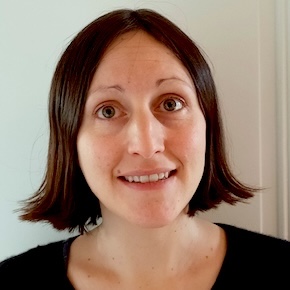A tool to structure our approach to understanding political economy
Achieving Universal Health Coverage (UHC) through social health protection and health financing systems reforms across the countries in which P4H works is more than a technical challenge.
Many technical issues such as user fee removal, health taxes, introduction of social health insurance, or the subsidization of vulnerable people, are politically sensitive. Understanding why the removal of user fees was successful in Sierra Leone, why performance based financing led to improved health outcomes in Rwanda or why capitation payment became a nationwide reform in some countries, but not in other, requires an analysis of the political economy of the countries in which the reforms take place.
Country experiences suggests that the success of national social health protection and health financing reforms will be difficult without political support and commitment.
It is also evident that partnership collaboration works if it builds on political economy variables dealing with ideology, idea, interest and institution. Therefore, understanding of the political economy (i.e. the social, economic and political conditions within which a technical reform sits) is essential to be able to navigate reforms. This need was recognized during many P4H organized meetings and events. The main target is the P4H country focal persons (P4H-CFPs) who are deployed or appointed in countries directly engage with the complex political economy dynamics of their countries and support them to systematically integrate a structured political economy lens into their technical work.
The P4H Network has taken initiative to develop a Political Economy Tool (PET) aimed at supporting a structured political economy approach to understanding their country specific political situations and windows of opportunities for enhanced partnerships. The PET outlines how to identify the ideologies behind stakeholders‘ policy positions, how to understand where their ideas come from, what the interests of each stakeholder are, and where the institutions (formal and informal) sit in relation to a particular reform.
The PET was piloted in two countries (Cameroon and Cambodia) to test its pertinence and practical usefulness for P4H-CFP engaged with country specific reforms and political economy processes. These countries were selected following a set of agreed criteria (interest of P4H-CFPs, accessibility, ongoing reform process). The piloting was undertaken by P4H-CFPs in Cameroon and Cambodia from January to June 2023 under the guidance of an international political economy consultant.
People involved

Bayarsaikhan Dorjsuren
P4H Coordination Desk, WHO
Peter Hill
Associate Professor, University of Queensland, Australia
Virgile Pace
P4H Consultant on legal and institutional framework
Htet Nay Lin Oo
P4H CFP in Myanmar
Cristina Manzanares
P4H CFP, Mozambique
Lou Tessier
Social Protection Department, ILO
Nouria Brikci
P4H Consultant on Political Economy
Aminata Nana
P4H CFP in Cameroon
Niccolo Rotigliano
P4H CFP in CambodiaKey Milestones
The tool piloted in Cambodia and Cameroon to refine and finalize.
P4H CT meeting reviewed, a consultant recruited, and CFPs engaged to update the tool
Tool revised with technical inputs of ILO and WHO
Tool draft discussed and tested by CFPs in Myanmar and Senegal
The University of Queensland is contracted
Literatures reviewed and repository developed
P4H validated the PE topic.
Political economy (PE) is proposed to P4H.
References
- Giulia Loffreda, Kéfilath Bello etol 2021. Political economy analysis of universal health coverage and health financing reforms in low- and middle-income countries: the role of stakeholder engagement in the research process. Health policy and Systems, BMC.
- Kevin Croke, Mariana Binti Mohd Yusoff etol. 2019. The political economy of health financing reform in Malaysia. Health Policy and Planning.
- Viroj Tangcharoensathien, Walaiporn Patcharanarumol etol. The Political Economy of UHC Reform in Thailand: Lessons for Low- and Middle-Income Countries. Health Systems and Reform.
- Lavers, Tom (2016): Understanding elite commitment to social protection: Rwanda’s Vision 2020 Umurenge Programme, WIDER Working Paper, No. 2016/93, ISBN 978-92-9256-136-9, The United Nations University World Institute for Development Economics Research (UNU-WIDER), Helsinki
- Susan P. Sparkes, Jesse B. Bump, Ece A. Özçelik, Joseph Kutzin & Michael R. Reich (2019): Political Economy Analysis for Health Financing Reform, Health Systems & Reform, DOI: 10.1080/23288604.2019.1633874
Link to other institutions
- SOAS, University of London, also specializes in questions of political economy
